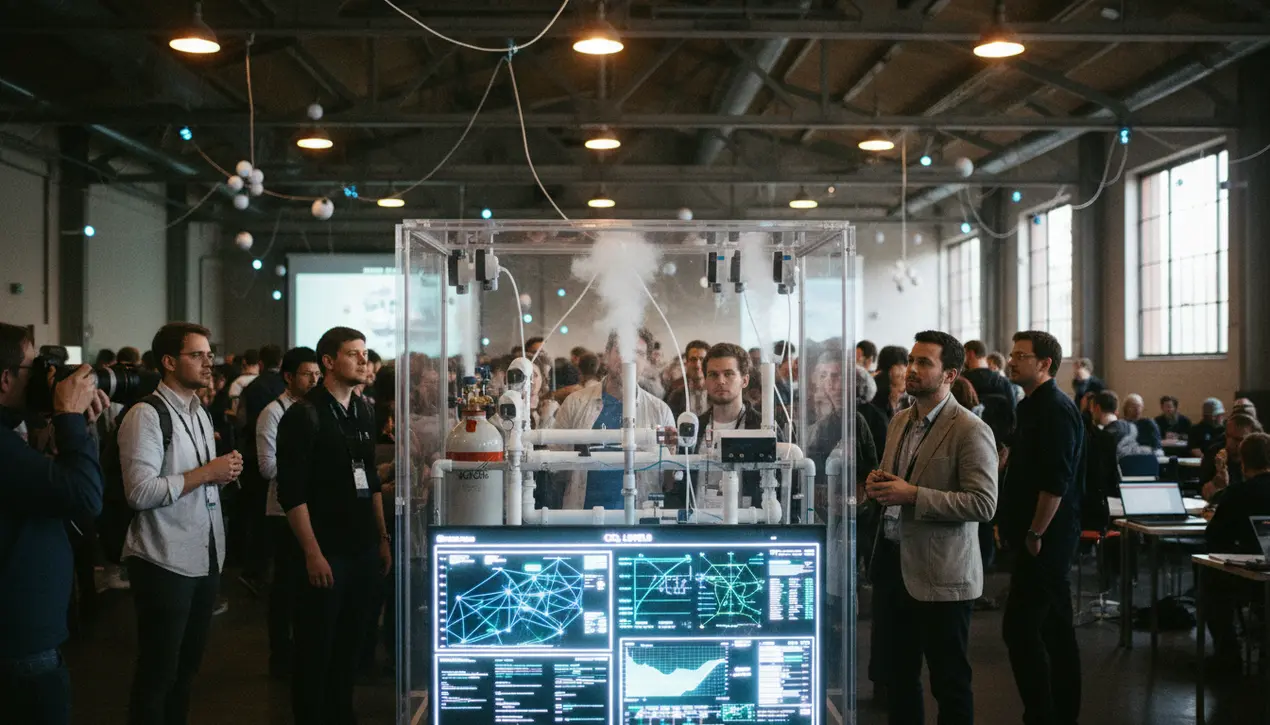
Scienceclimate scienceClimate Conferences
Hacker conference installs literal antivirus CO2 monitoring system.
KE
Kevin White
2 hours ago7 min read1 comments
In a move that perfectly encapsulates the hacker ethos of creative problem-solving, organizers at a recent major conference engineered a literal antivirus system, not for digital malware, but for the airborne threat of poor ventilation. They deployed a sophisticated CO₂ monitoring network throughout the venue, allowing attendees to track real-time carbon dioxide levels on a public dashboard, a feature accessible even before they set foot on site.This wasn't merely a convenience; it was a deliberate, data-driven public health intervention. High CO₂ concentrations, often exceeding 1,000 parts per million in crowded, poorly ventilated indoor spaces, are a well-documented culprit in cognitive decline, leading to drowsiness and diminished focus—hardly ideal for absorbing complex technical talks.More critically, in the context of a post-pandemic world, CO₂ levels serve as a potent proxy for aerosol buildup, directly indicating the potential risk of airborne pathogen transmission like COVID-19. This initiative goes far beyond simple compliance, representing a paradigm shift in how we conceptualize building safety.It’s a form of bio-hacking the very air we share, applying the principles of open-source data and transparency to a fundamental human need. The technology itself, leveraging affordable, networked sensors and cloud-based analytics, is a testament to the rapid maturation of the Internet of Things (IoT) in the life sciences sector.One can easily envision this model being adopted not just at future tech gatherings, but in offices, schools, and hospitals, creating a new standard for environmental accountability. The long-term implications are profound.As we continue to integrate with our environments through biotechnology and ambient data, such systems could evolve to autonomously regulate airflow, integrate with personal health trackers, or even provide early warning signals for other volatile organic compounds. This conference didn’t just talk about the future of technology; it built a tangible, breathing piece of it, demonstrating that the most impactful code sometimes isn't written in Python or C++, but in the very molecules of our shared atmosphere, a next-gen defense for our collective well-being.
#hacker conference
#CO2 monitoring
#air quality
#environmental tech
#featured
#cybersecurity
#event management
#public health
Stay Informed. Act Smarter.
Get weekly highlights, major headlines, and expert insights — then put your knowledge to work in our live prediction markets.
Comments
Loading comments...
© 2025 Outpoll Service LTD. All rights reserved.